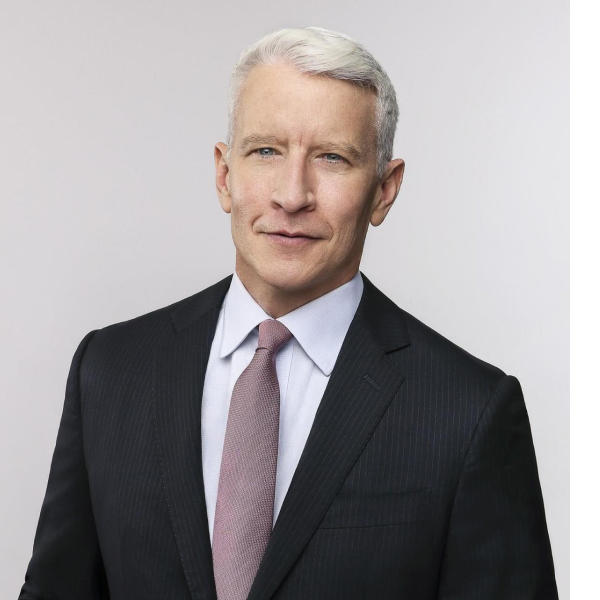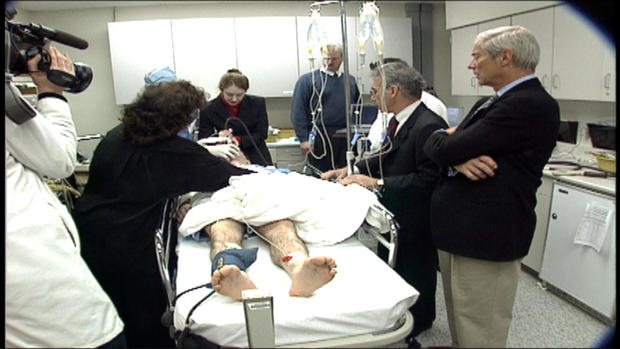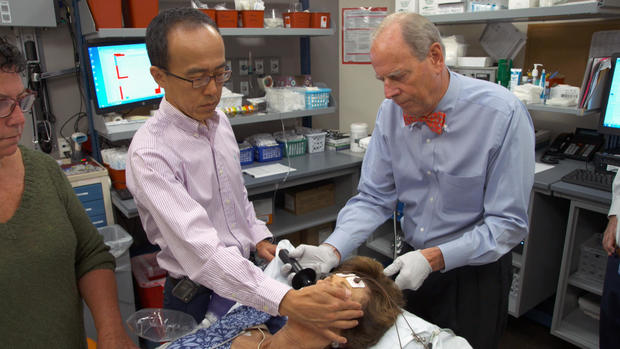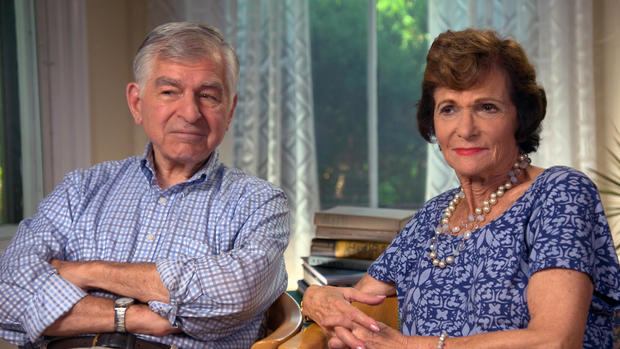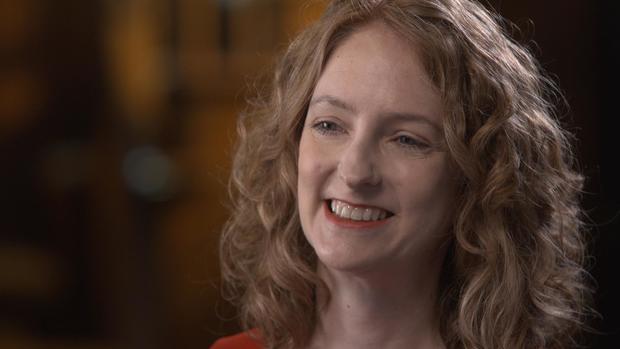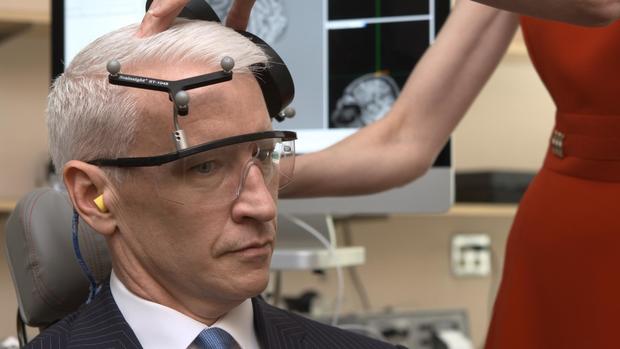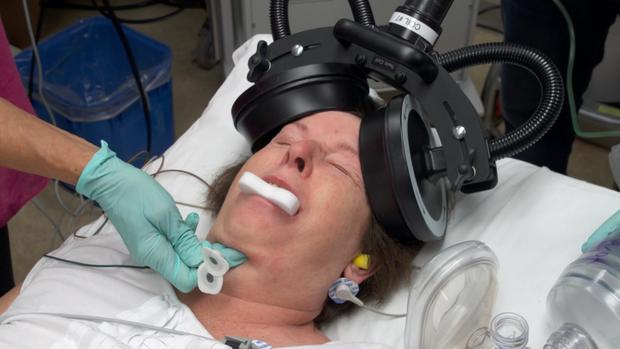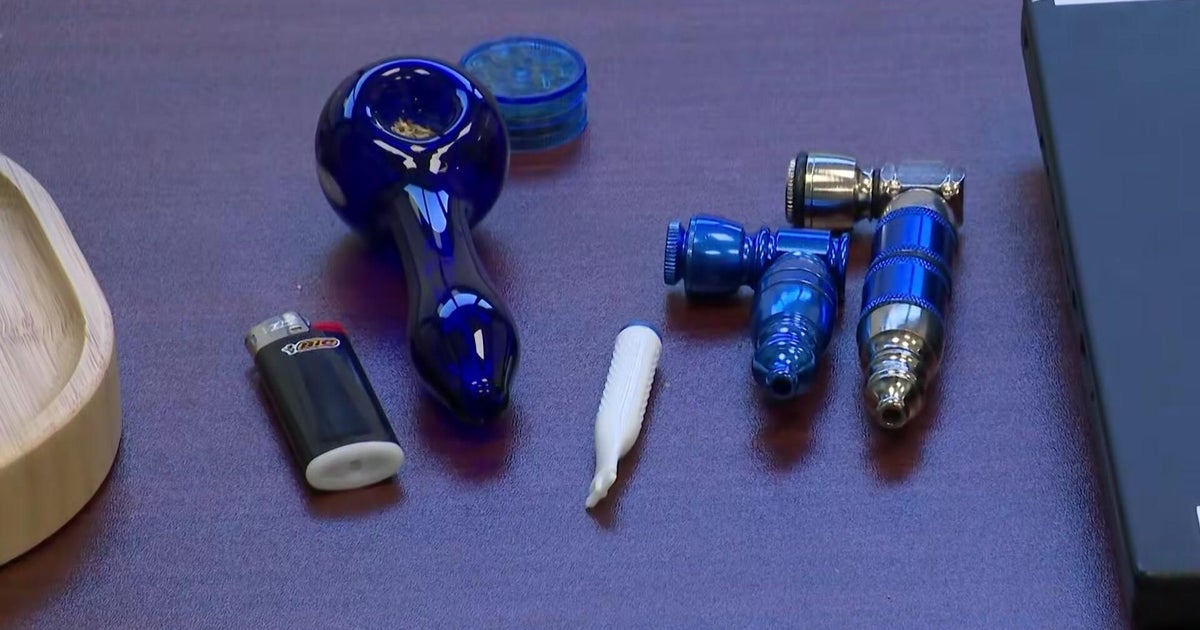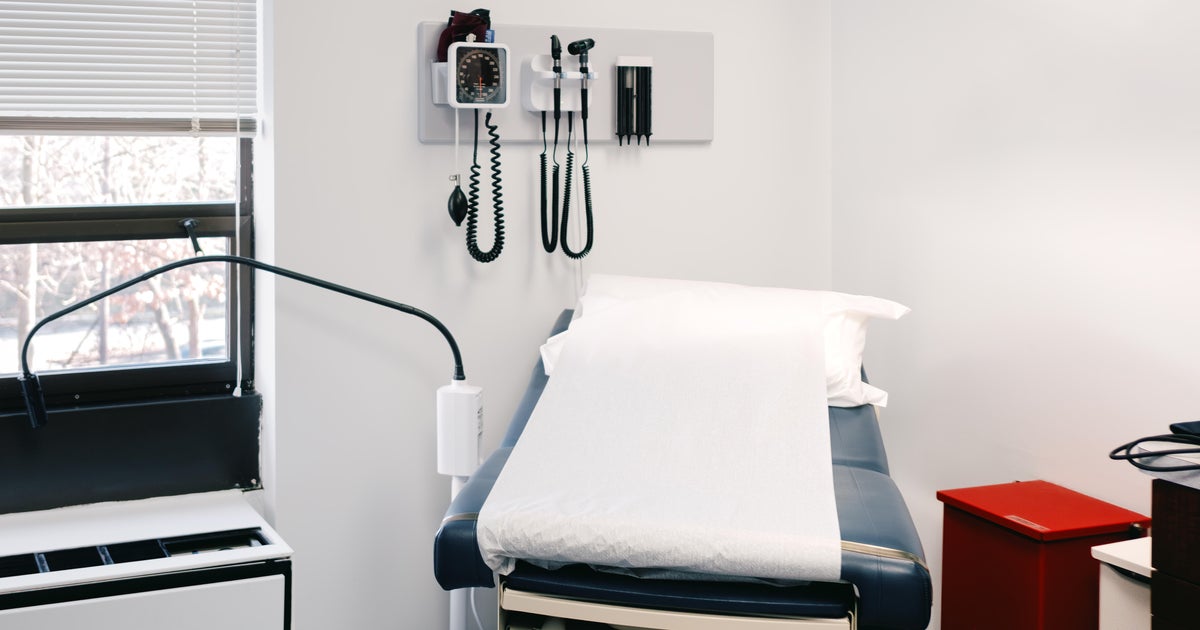Is shock therapy making a comeback?
You've probably heard the term "shock treatment" used to describe electroconvulsive therapy or ECT. Psychiatrists don't like the term because of the stigma surrounding it, which they say prevents the vast majority of severely depressed patients from ever trying it.
What might surprise you to learn is that despite its misuse in the past, ECT is now considered one of the most effective treatments for people who haven't been helped by antidepressant medication. In the U.S. alone, that's more than five million Americans suffering from depression so crippling, it leads many people to take their own lives.
"So many of my patients, after they've had ECT, say to me, 'why did I wait so long to do this?'"
Dr. Sarah Lisanby: One of my patients explained it to me saying that, "It's not that I want to die. It's that living is too painful."
Dr. Sarah Lisanby works at the National Institute of Mental Health in Maryland, developing new ways to help the more than 35 percent of depressed patients who don't get better with medication.
Dr. Sarah Lisanby: Imagine feeling severely depressed, and then you try medication after medication, and those treatments, even though you're doing everything the doctor told you, the treatments are failing you.
Anderson Cooper: How long have they been trying to get some sort of medication that -- that works?
Dr. Sarah Lisanby: It's not uncommon for someone to have tried 20 or 30 different medications by the time that they come to see me.
Anderson Cooper: So if you are trying 30 medications, that's, that is taking years of your life.
Dr. Sarah Lisanby: Exactly. And imagine how that would magnify your hopelessness.
We first met Dr. Lisanby in 2001 when Bob Simon watched her and her team administer electroconvulsive therapy, ECT, long considered a treatment of last resort.
ECT works by inducing a one-minute seizure, which the patient doesn't feel because he's been given muscle relaxants and general anesthesia.
Anderson Cooper: Why is the seizure aspect of it so important? Because of all the words seizure would be the word I would try to avoid the most?
Dr. Sarah Lisanby: So when the brain is seizing during a seizure it releases all of the neurotransmitters, the brain chemicals that are the messengers in the brain. And it releases them very rapidly and massively in a higher level than medications do.
The treatment may work wonders, but only a tiny fraction, about one percent, of the people who might benefit from it, end up trying it.
Anderson Cooper: It's still frightening for people.
Dr. Sarah Lisanby: It's not something that you have to be afraid of, and so many of my patients, after they've had ECT, say to me, 'why did I wait so long to do this?' or 'why did my doctor wait so long to refer me for this?'
That was the reaction of former first lady of Massachusetts Kitty Dukakis. She is now 81, and has become one of the most famous and outspoken advocates for ECT. She first had the treatment almost 20 years ago.
Shortly after her husband, Governor Michael Dukakis ran unsuccessfully for president in 1988, Kitty Dukakis' struggles with alcohol spiraled out of control.
She was treated for alcoholism, but her drinking masked an underlying chronic depression.
Kitty Dukakis: I didn't see any way out of this problem that I had.
Anderson Cooper: Had you tried all different kinds of medication?
Kitty Dukakis: Every kind you can think of, yes. And none of them work-- none-- none of them were successful.
Anderson Cooper: How long was it that you were trying different medications before ECT?
Michael Dukakis: 17 years.
Anderson Cooper: Wow.
Kitty Dukakis: Yeah. It was a long, long time.
Michael Dukakis: One would think that somehow, sometime earlier than 17 years somebody would have said, "Hey, go see Doctor Welch."
Dr. Charlie Welch administers ECT here at McLean Psychiatric Hospital outside Boston. He was the person Kitty Dukakis came to see about getting it.
Anderson Cooper: What did you say to her when she first came?
Dr. Charlie Welch: I said, "I'm glad you've decided to do this. I think we can get you feeling better fairly quickly."
Anderson Cooper: Her doctor previously had-- had told her-- who was treating her told her, "Don't go for ECT."
Dr. Charlie Welch: Correct.
Back then, ECT was among the most vilified treatments in psychiatry because of the way it used to be administered, portrayed disturbingly in the film "One Flew Over the Cuckoo's Nest".
Dr. Charlie Welch: Clearly "One Flew Over the Cuckoo's Nest" gave ECT a bad name because that's not how it actually is done.
Anderson Cooper: It was done that way in the past.
Dr. Charlie Welch: In the past it was, but it's much more refined now.
Anderson Cooper: There was no anesthesia, too much electricity.
Dr. Charlie Welch: Right.
Anderson Cooper: So what's different about it now?
Dr. Charlie Welch: What's different first of all is that it's done under general anesthesia with a muscle relaxant. So when the treatment is done, the patient is sound asleep and completely relaxed.
Anderson Cooper: If you're having it done, you don't even know it's happening 'cause you're asleep.
Dr. Charlie Welch: That's correct. For the patient, the experience is like taking a five-minute nap.
The seizure seems to restore the brain's proper circuitry. In Kitty Dukakis' case, the results were immediate.
Kitty Dukakis: I just was like a new person.
Michael Dukakis: It was our anniversary, remember?
Kitty Dukakis: Yeah, (LAUGH) right—
Anderson Cooper: It was your anniversary? Do you remember the day?
Michael Dukakis: Remember what happened? I picked you up at the hospital. Then what happened?
Kitty Dukakis: We got in the car and Michael started driving. And I said, "I think-- I want to go out for dinner for our anniversary."
Michael Dukakis: You said, "Let's go out for dinner--"
Kitty Dukakis: Let's go out-- (LAUGH) okay.
Anderson Cooper: If somebody hadn't suggested the ECT to you, what do you think would have happened to you?
Kitty Dukakis: I can't imagine. I mean, I think it would have gotten worse and worse and worse.
Michael Dukakis: I don't think Kitty would be here today.
For most depressed patients, ECT involves about eight to 12 treatments over several weeks. In the past 20 years, Kitty Dukakis has undergone ECT more than 100 times.
Anderson Cooper: If ECT works so well for Kitty Dukakis, why does she need to have repeated treatments?
Dr. Charlie Welch: The nature of depression is that it is usually a relapsing illness.
Anderson Cooper: That's common?
Dr. Charlie Welch: That is very common.
Last spring Dukakis decided to stop getting ECT. When we first met with her in July, she hadn't had her regular treatments for months. Her depression had returned and she had difficulty answering our questions.
Anderson Cooper: Every doctor I've talked to credits you and your willingness to talk openly about this.
Kitty Dukakis: You can ac-- you can explain this better than I can. I'm having trouble speaking right now.
DOCTOR: Just tell us your full name and date of birth please, Kitty.
Kitty Dukakis: Excuse me?
DOCTOR: Can you just tell us your full name and date of birth?
Kitty Dukakis: Katherine "Kitty" Dukakis
Realizing she needed help, she resumed getting ECT and allowed us to film it. The whole visit lasted about an hour. Dukakis was sedated, and electricity was administered to her brain for a few seconds. The seizure lasted about a minute. The only sign of it was some slight trembling in her feet.
When we met her again two months later, we could see the difference.
Anderson Cooper: The last time we saw you, you weren't feeling well. How are you feeling now?
Kitty Dukakis: I'm fine. I feel very well and I've been, I've been having treatment again.
Anderson Cooper: You're okay with your-- the treatment we filmed being broadcast?
Kitty Dukakis: Yeah. I am. I-- I-- this is-- I'm convinced that-- that if I can be that public, that it will help others. And-- I-- I think we both feel that way.
Anderson Cooper: Is this something you see doing for the rest of your life?
Kitty Dukakis: I probably will have to do this for the rest of my life. And-- and that's okay.
Anderson Cooper: It's just a routine.
Kitty Dukakis: It's the way it goes.
But as Kitty Dukakis has experienced to a small degree, ECT carries a disturbing side effect – memory loss.
Dr. Sarah Lisanby: ECT can cause memory loss. It's been modernized to reduce the amount of memory loss. But it's not zero.
Anderson Cooper: What sort of memory loss do people have, I mean, and is it permanent?
Dr. Sarah Lisanby: Typically memories close in time to the treatment. Over time, those memories can return. But the problem is they don't always return completely. That's what motivates my research. I-- I feel like people shouldn't have to choose between their memories, and their moods.
Dr. Sarah Lisanby has spent decades trying to solve that problem. She has developed an experimental treatment called magnetic seizure therapy or MST that uses magnets instead of electricity to induce the seizure.
With ECT, the electricity floods the whole brain, including its memory centers. Magnets are gentler and can pass through tissue more easily, so they can target just 4 percent of the brain, in the prefrontal cortex, one of the main areas affected by depression.
Dr. Sarah Lisanby: So this is the magnetic coil.
Dr. Lisanby showed us how the magnetic coil can pinpoint a specific area of the brain.
Anderson Cooper: So what is on the, the monitor?
Dr. Sarah Lisanby: Ok, so on the monitor, we're looking at a brain scan showing us in real time as we move the coil around on your head, it's showing us where on the brain surface we are targeting.
Anderson Cooper: So, so this allows, allows it to be more precise in terms of where you're stimulating the brain as opposed to ECT which would have a larger area of the brain.
Dr. Sarah Lisanby: That's right we can focus the magnetic field more precisely than we can with ECT, for example we can even find just the right spot in your brain to make your thumb twitch but not the rest of your arm.
Anderson Cooper: Ok.
Dr. Sarah Lisanby: So, shall we try it. Ok, so I'm going to go ahead and put the coil on your head and you're going to hear a clicking noise and feel a tapping on your head. Are you ready? I'm going to go ahead and start. And your hand moved. I'm going to move the coil around a little bit. I'm going to go again. See I got your index finger there.
It was 18 years ago that Dr. Lisanby first tried the magnetic treatment on a patient in Switzerland.
Anderson Cooper: I mean it all happens very fast. It's not a lengthy treatment.
Dr. Sarah Lisanby: Yeah, you can see she's already waking up.
Anderson Cooper: She's smiling.
Dr. Sarah Lisanby: Yeah, she's smiling. I mean she's not in pain. And she started to feel better almost right away. And the important thing is, she did not have serious side effects.
Since then, Lisanby and others have conducted trials that show the magnetic therapy seems to work in treating depression without causing noticeable memory loss. One study in 2015 that compared ECT and the magnetic treatment found that "ECT-induced acute memory disruption… is absent after MST," Dr. Lisanby's magnetic therapy.
Anderson Cooper: Would it replace ECT?
Dr. Sarah Lisanby: I would view magnetic seizure therapy, if successful, as an additional tool in the toolbox. For some people, ECT may still be needed. But if magnetic seizure therapy could be effective without the memory loss who wouldn't want to try that first?
Starting this year, here at the Center for Addiction and Mental Health in Toronto, and also in Dallas, Texas, doctors are comparing the two treatments in the first large coordinated trial by the National Institute of Mental Health. It will span five years and involve more than 250 patients.
"There is light at the end of the tunnel. There is. Yes."
Sharyn Jakab is one of the patients receiving the magnetic treatment.
Sharyn Jakab: I had severe psychosis. I, I really wanted to kill myself with a gun.
Anderson Cooper: Did you have a gun in the house?
Sharyn Jakab: There was a gun in the house. Yes.
Anderson Cooper: And you had cartridges for it?
Sharyn Jakab: I had cartridges, yes.
Once a thriving opthamologist, Sharyn Jakab lost her career after developing chronic depression that didn't respond to medication. It became so severe she had to suicide-proof her house, getting rid of all sharp objects including her ice skates. Still, she wouldn't get ECT.
Sharyn Jakab: I didn't wanna have ECT because of the stigma and because of the risk of memory loss.
Anderson Cooper: You decided not to do it.
Sharyn Jakab: That's right, and then-- my psychiatrist said, how would I like to be part of a study for MST, magnetic seizure therapy.
She let us film her procedure.
After several treatments, which she augmented with medication, she began to feel better.
Sharyn Jakab: After the fourth treatment, I said, I feel much lighter.
Anderson Cooper: Lighter? That was the…
Sharyn Jakab: Lighter was the way it felt to me. Yes.
Anderson Cooper: Your face lights up when you talk about it.
Sharyn Jakab: Yes, (laugh) yes. I'm very blessed.
Anderson Cooper: Have you had memory loss?
Sharyn Jakab: No, I haven't.
Anderson Cooper: So no short-term or long-term memory loss?
Sharyn Jakab: None at all.
Anderson Cooper: Do you feel like yourself?
Sharyn Jakab: Right now I feel very, very good. I feel like, like my old self.
Anderson Cooper: There is a way out of it.
Sharyn Jakab: There is light at the end of the tunnel. There is. Yes.
Anderson Cooper: And you're proof of that.
Sharyn Jakab: I am.
Produced by Sarah Koch and Chrissy Jones.
